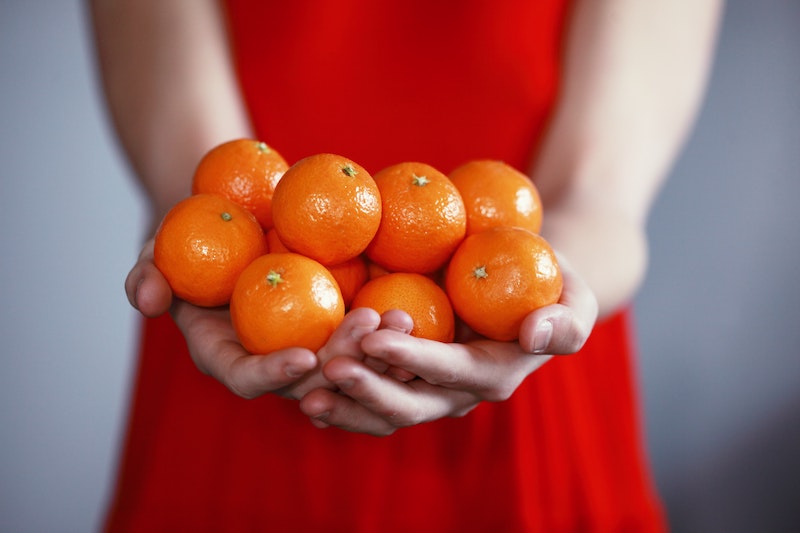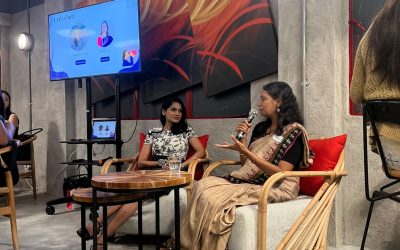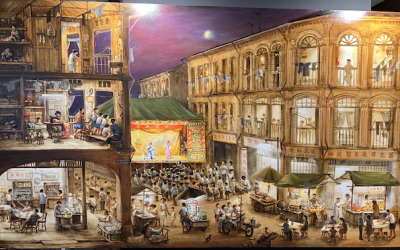On the eve of the Lunar New year, I walked down to the store down the street where I usually buy fruits and flowers. It had opened during the pandemic, not the best time for any new business. Yet it had not only managed to stay afloat but also expanded. The small nursery section now occupied most of the floor space, with the fruit shop nudged to the corner.
I passed the beautiful and seasonal kumquat trees at the entrance accompanied by rows of flowering pots. My quest was to find bamboo stems to replace the two that had died the previous month. Mo, the knowledgeable lady whom I had befriended over the year while chatting about flowers and potting soil, had told me that she was expecting new bamboo plants in time for the new year. Unlike most afternoons when I am the only customer, the shop was buzzing with people checking out the orchids and bouquets.
“Hello. Happy New Year,” I said, handing Mo a red packet.
“I came to see you before you leave early for the day,” I continued, ignoring her surprise at my unexpected gift. She hesitated, but I pushed her hand with the packet into her apron pocket.
“Working, full day today. Tomorrow also,” she said, her expression hidden behind her mask.
“That’s too bad,” I said, as I picked up my bamboo and flowers and walked over to the counter to pay.
A few customers were lined up, eager to get on with their last minute holiday purchases. It made good business sense to keep a store open at the busiest time. But what about the employees?
Even with the promise of extra pay (which is not always the case), did it not deny them the opportunity to stop their daily routine and mark the festival? Mo’s younger colleague, an always smiling young woman was already sad that she couldn’t go home to Malaysia to spend the new year with her family. And now, they both had to work.
Home for the holidays
Almost three decades ago, driving on American highways during Thanksgiving or Christmas weekends, it was not uncommon to find everything shut, including gas stations, K-Marts and McDonalds. Even the gas stations on rest areas on highways would sometimes be closed, necessitating better planning for refueling road trips. It was an inconvenience, but it was also a reminder that people needed to stop their daily work and take time to rest and recharge in their preferred way, whether it was through a communal gathering or a solitary pursuit.
On a trip to New Zealand five years ago, we found ourselves in remote Milford Sound on Christmas day, surrounded by nature and other tourists. We had packed sandwiches and drinks in our car, knowing that stores would be closed. We took the last ferry of the afternoon and were able to buy some cake pieces of cakes just before the doors closed for the evening. For a change, we sat around the outdoor table, taking in the view and the silence, instead of hanging around the shop selling touristy knick-knacks. The weather was perfect with mild sunshine and a mellow light that heightened its beauty.
Making time in each day
On trips to Europe, even on ordinary days I had often complained about the inconvenience caused by stores that closed at 6 p.m. on weekdays, unlike in America where department stores and malls remained open late on all days. As a working mother, I could make a hasty trip for a gallon of milk or diapers. On slow weeknights, I could even plan for a quick shopping trip to Macys.
However, as a business traveller in London or Paris, I couldn’t accomplish much in the evenings, after a long day of meetings.
I walked along the gently flowing Rhine river in Basel one spring evening, taking in its quaint architecture. But I was unable to find a single open store where I could buy premium Swiss chocolates. It had to be done on the weekend that I was hoping to travel the length of the country.
Despite my impatience, I could not help but admire the spirit of people who valued their time and spent it in various outdoor pursuits. Their work-life model seemed to be doing quite well, financially and otherwise. The entire country was like a picture postcard, with mountains and lakes and the lilting sound of bells on cows grazing on hillsides.
I remember thinking – there must be a happy medium between work and leisure, between making a living and having a life.
Why are we so consumed with making the most of everything? Maximum money, maximum fun, maximum influence, maximum fun.
Unlike an upsized deal and a super-value meal, how about aiming for a medium-sized life? Sounds sacrilegious, but isn’t it more attainable?
Thinking small for a more meaningful life
In Why is an ordinary life not good anymore talk, philosopher Alain de Botton asks us to reconsider our fascination for defining people and success by what they do. The foolish aspiration to be at the top of whatever enterprise or work you do is not exactly a recipe for success, or happiness.
I wondered if we would all be collectively happier if individuals and companies chose to zoom in on the small pleasures of life. Instead of working long hours to accommodate the needs of fickle customers, if we could prioritise a reunion meal with family for the new year, a long walk with a partner on a breezy evening, or an impromptu karaoke session with friends, how would our world look?
Would we seek different ways for fulfilment instead of walking through brightly-lit malls (or cavernous online shopping portals) to fill that unnameable emptiness which is actually a disguised cry for connection? If there were no customers, would the stores remain open? I doubt it.
As I bought my bamboos and headed out of the store, once again wishing the ladies for the new year of the ox, a symbol of hard work and discipline, I smiled at the irony.






0 Comments
Trackbacks/Pingbacks